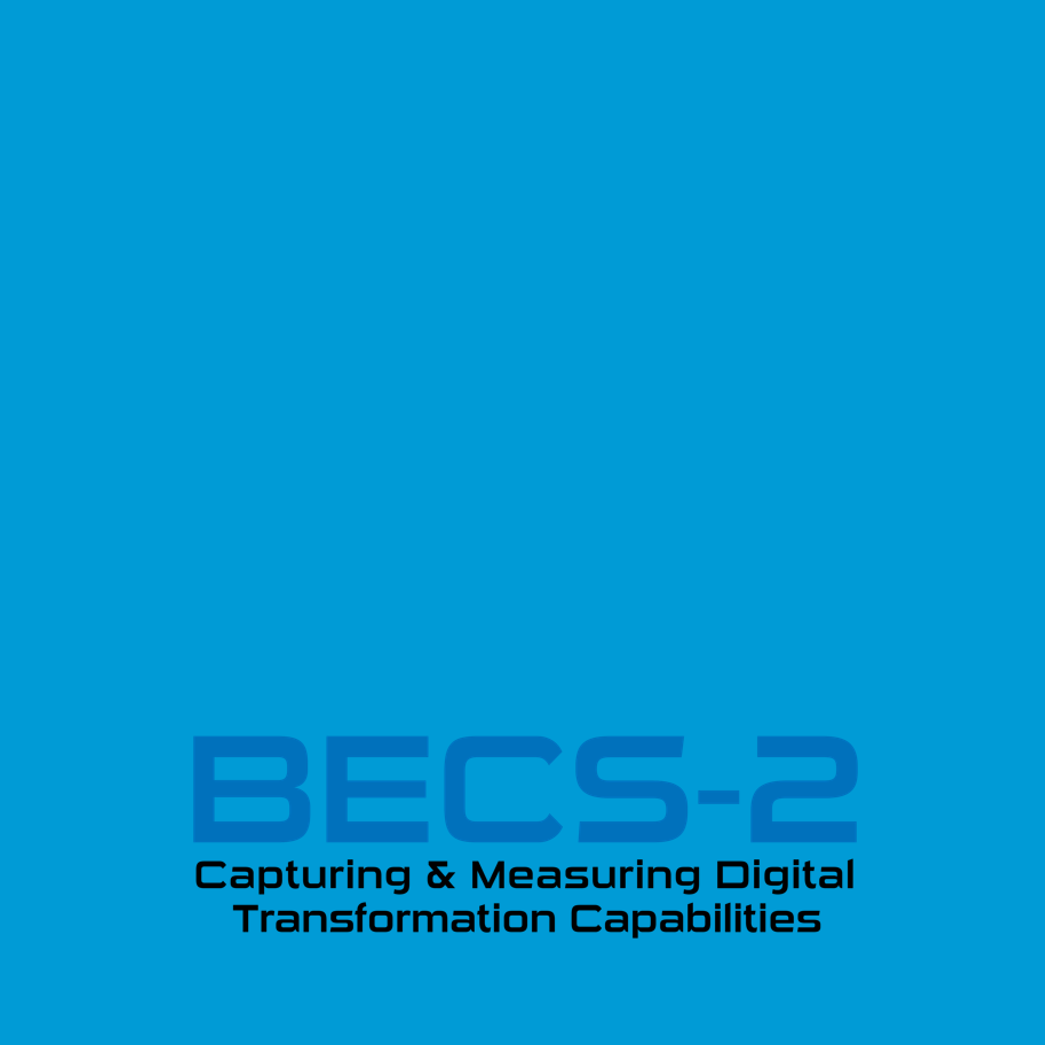Visit profile

BECS: A Sociotechnical Framework for ECS Benefits Realisation (Phase 2)

BECS-2
BECS-2 builds on and extends the work completed in the original project (BECS-1). The project examines the transformative characteristics of ECS. Through the collection of research data in the form of case studies, surveys, interviews, logfile data from 29 ECS using organisations, and provides the first large-scale, comprehensive, empirical study on the role of ECS in the digital transformation of organisations.
Phase 2: Capturing and Measuring Digital Transformation Capabilities
BECS-2 builds on and extends the work completed in the original project (BECS-1). The project examines the transformative characteristics of ECS. Through the collection of research data in the form of case studies, surveys, interviews, logfile data from 29 ECS using organisations, and provides the first large-scale, comprehensive, empirical study on the role of ECS in the digital transformation of organisations.
The aim is to investigate this transformation process and to identify the capabilities and resources required for the design of the Digital Workplace.Specifically, the research objectives are to:
- Capture and understand how ECS are evolving and how companies can effectively develop a digital transformation capability
- Develop methods for identifying, capturing and measuring digital transformation capabilities and their change over time, and
- Investigate and theorise the processes of digital transformation and develop a framework for understanding digital transformation capabilities
The research project consists of two interlinked research streams. The first research stream develops in-depth longitudinal case studies with the objectives of analysing and theorising the digital transformation process in organisations and identifying the required digital transformation capabilities and resources. The second research strand develops the required methods, metrics and tools for the in-depth analysis of large-scale ECS platform usage and provide system-level evidence of digital transformation.
The consolidated findings provide the basis for the development of an integrated analytical framework to guide the investigation and theorisation and bring greater clarity and cohesion to the study of digital transformation capabilities and resources.
Fundings & Partners











